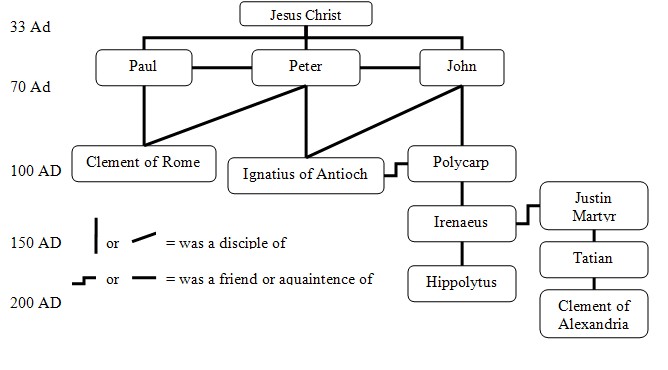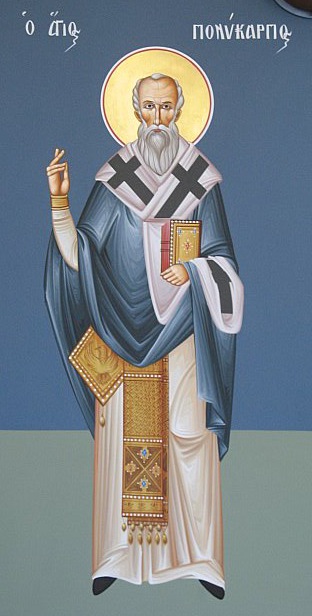I’m currently preparing the next document we’re going to be reading in the JP2 Group: “The Martyrdom of Polycarp”. Polycarp was a 2nd Century Bishop in Smyrna about whom I’ve written before. I’ve got a lot to do, so I need to get back to my books soon, but before that, I just wanted to share with you something rather cool I’ve just found…
Stranger On The Shore
The account of Polycarp’s martyrdom begins with a covering letter:
“From the Church of God which resides as a stranger at Smyrna, to the Church of God temporarily sojourning in Philomelium, and to all the congregations of the Holy and Catholic Church in every place: may mercy, peace, and love from God the Father and our Lord Jesus Christ be yours in abundance”
– The Martyrdom of Polycarp (Greeting)
The author, a chap called Marcus/Marcion, describes Smyrna’s church as “resid[ing] as a stranger” and Philomelium’s church as “temporarily sojourning” in that city. This concept often comes up in the writings of the Early Church (Clement, Ignatius, …) and draws from an idea we also find expressed in Sacred Scripture:
“Dear friends, I urge you, as foreigners and exiles, …”
– 1 Peter 2:11
The early Christians were keenly aware that they did not permanently belong on this earth, but rather, were citizens of heaven, temporarily away from their homeland. As someone with a blog entitled “Restless Pilgrim”, who has traveled quite a bit and is currently living away from his native country, I find it quite easy to relate to this viewpoint.

- Strangers temporarily staying in a foreign land
Paroikia
So, in the martyrdom’s introduction, the author is simply expressing a deeply ingrained, Early Church mindset – that we reside here temporarily. However, what makes this really cool is that I’ve now seen the Greek. The noun which is used here is “παροικια”, or, in our alphabet, “paroikia” (pa-roy-kee-a) and it literally means “a sojourning” or “a dwelling in a strange land”.
“So what?” I hear you say.
“I’m glad you asked!” I reply.
“Paroikia” is the root of the word which was later used by Christians to describe the local assembly and its location: “parish”… This etymology tells us a profound spiritual truth. Particularly if you haven’t moved around much, it’s easy to think of your parish as your “home” – we even refer to our “home parish”. To an extent, this is true, but really, our parish, our “paroikia” is only a temporary dwelling, an outpost of Heaven. One day we will have to leave and head to our true and everlasting home.
“Christians are not distinguished from the rest of mankind by either country, speech, or customs; the fact is, they nowhere settle in cities of their own… They reside in their respective countries, but only as aliens. They take part in everything as citizens and put up with everything as foreigners. Every foreign land is their home, and every home a foreign land… They spend their days on earth, but hold citizenship in heaven.”
– The Epistle To Diognetus, 2nd Century





